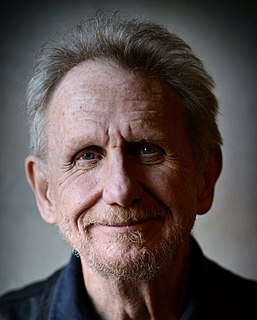A Quote by Rene Auberjonois
I love the fact that it's not only about Star Trek, but about science fiction in general, and science.
Related Quotes
Science fiction, as I mentioned before, writes about what is neither impossible nor possible; the fact is that, when the question of possibility comes up in science fiction, the author can only reply that nobody knows. We haven't been there yet. We haven't discovered that yet. Science fiction hasn't happened.
Most of what I do is science fiction. Some of the things I do are fantasy. I don't like the labels, they're marketing tools, and I certainly don't worry about them when I'm writing. They are also inhibiting factors; you wind up not getting read by certain people, or not getting sold to certain people because they think they know what you write. You say science fiction and everybody thinks Star Wars or Star Trek.
Science fiction is a weird category, because it's the only area of fiction I can think of where the story is not of primary importance. Science fiction tends to be more about the science, or the invention of the fantasy world, or the political allegory. When I left science fiction, I said "They're more interested in planets, and I'm interested in people."
I love science fiction but I don't like fantastic [cinema]. For example, if you have a magical ring and you can explode the world with it. What are we talking about? You know, it's not interesting. I don't like Lord of the Rings. Even Star Wars, for me, I don't understand this kind of story. But Alien, because the rules of the game are very precise, it could happen. I love science fiction. I have an idea about robots in the future.
Science fiction is fantasy about issues of science. Science fiction is a subset of fantasy. Fantasy predated it by several millennia. The '30s to the '50s were the golden age of science fiction - this was because, to a large degree, it was at this point that technology and science had exposed its potential without revealing the limitations.
It had also been my belief since I started writing fiction that science fiction is never really about the future. When science fiction is old, you can only read it as being pretty much about the moment in which it was written. But it seemed to me that the toolkit that science fiction had given me when I started working had become the toolkit of a kind of literary naturalism that could be applied to an inherently incredible present.
The significance of a fact is relative to [the general body of scientific] knowledge. To say that a fact is significant in science, is to say that it helps to establish or refute some general law; for science, though it starts from observation of the particular, is not concerned essentially with the particular, but with the general. A fact, in science, is not a mere fact, but an instance. In this the scientist differs from the artist, who, if he deigns to notice facts at all, is likely to notice them in all their particularity.



































